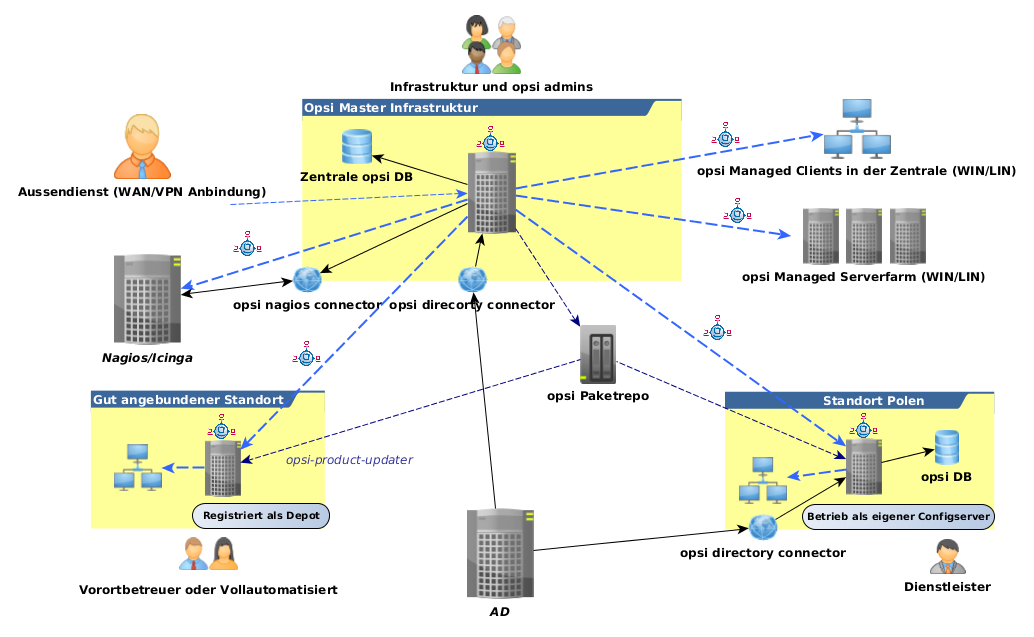Set $INST_Resultlist$ = getMSVersionMap
Copyright
Das Copyright an diesem Handbuch liegt bei der uib gmbh in Mainz.
Dieses Handuch ist veröffentlicht unter der creative commons Lizenz
Namensnennung - Weitergabe unter gleichen Bedingungen (by-sa).

Eine Beschreibung der Lizenz finden Sie hier:
http://creativecommons.org/licenses/by-sa/3.0/de/
Der rechtsverbindliche Text der Lizenz ist hier:
http://creativecommons.org/licenses/by-sa/3.0/de/legalcode
Die Software von opsi ist in weiten Teilen Open Source.
Nicht Open Source sind die Teile des Quellcodes, welche neue Erweiterungen enthalten die noch unter Kofinanzierung stehen, also noch nicht bezahlt sind.
siehe auch:
http://uib.de/de/opsi-erweiterungen/erweiterungen/
Der restliche Quellcode ist veröffentlicht unter der AGPLv3:

Der rechtsverbindliche Text der AGPLv3 Lizenz ist hier:
http://www.gnu.org/licenses/agpl-3.0-standalone.html
Deutsche Infos zur AGPL: http://www.gnu.org/licenses/agpl-3.0.de.html
Für Lizenzen zur Nutzung von opsi im Zusammenhang mit Closed Source Software kontaktieren Sie bitte die uib gmbh.
Die Namen opsi, opsi.org, open pc server integration und das opsi-logo sind eingetragene Marken der uib gmbh.
